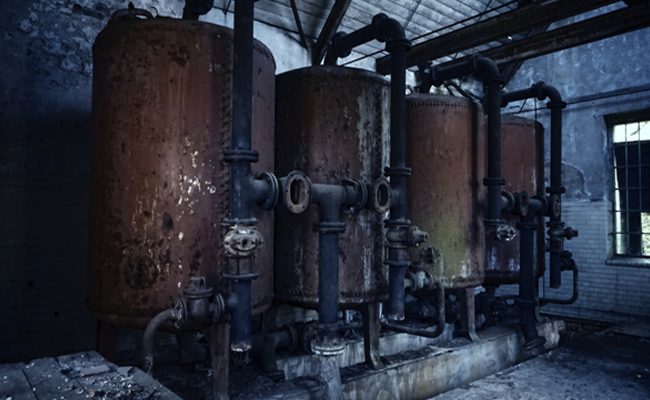
An older boiler system that still works might not need any replacements, but you would still need to purchase fuel to keep it functioning.
This means that older boiler systems use more energy than newer models as technology has advanced over the years and energy efficiency has improved
An older boiler would need much more fuel or gas than having to install a new boiler system. You can upgrade here to find newer boiler models and replacements.
How Does a Boiler Work?
Boilers are a simple appliance, they heat water. The water can either be turned into hot water or steam. The steam moves through the pipes and comes through the radiators whereas hot water moves through radiant floor systems or baseboard radiators or they can heat the cold air via a coil.
Energy Efficient Factors Of a Boiler
Each energy efficient level might be affected differently since each boiler type is not the same.
The main concern about your boilers is to make sure that they are not losing any heat as heat loss makes a boiler less energy efficient using up more energy to work properly.
Positive & Negatives of Having a Boiler
There are some positives and negatives to having a boiler. The positives are as follows:
- Better air quality
They do not blow out air or dry out the air around them. This also means that they do not spread any dust or allergens.
- They are energy efficient
They do not require as much energy to heat homes as other heating systems might need.
- They give constant heat
A boiler gives off constant heat when compared to a furnace.
- Less maintenance
They do not require much maintenance as they do not have a filter that needs to be cleaned.
- Do not make as much operational noise
They are much quieter than furnaces.
The negatives are as follows:
- They are harder to install
Boilers are harder to install.
- Boiler can potentially leak
If boilers start leaking they become a health hazard
- Boilers react slower
Whether turning the temperature up or down, these take longer to react to these changes whereas another heating system would show the effects immediately.
How to Maintain Your Boiler
You need to maintain your boiler whether it is old or new so that it can always operate at its best.
There are different types of maintenance that can be done for different types of boiler systems you might have.
If you have a forced air system:
- You need to test for carbon monoxide.
- You need to clean and oil the blower.
- Check the fuel input and the flame characteristics and adjust them as needed.
- You need to check the combustion chamber for cracks.
- You can adjust the blower control and the supply-air temperature.
If you have a steamed air system:
- You need to clean the heat exchanger.
- You also need to drain the float chamber to remove the sediment this will prevent clogging.
- You need to analyze the boiler water and add in chemicals as needed to control corrosion and deposits.
- You also need to test the low-waters cut-off safety control and the high-water safety control.
- You need to drain the water to remove any sediments and this will help improve the heat exchange efficiency.
If you have a hot water system:
- You need to test the high-limit control.
- You also need to clean the heat exchanger.
- You need to test the pressure relief valve from time-to-time.
- Inspect the pressure tank to ensure that it is only filled with air.
Here are some maintenance tips you can do on all systems:
- You need to adjust the heating settings so that you have it operating at the desired heat or air temperature.
- You need to have a combustion efficiency test done by a technician if you are considering replacing your boiler.
- Also check your chimney and your vent connection pipe. If you have a chimney that is giving problems or do not have a chimney you can choose to replace or install a boiler system that does not need a chimney feature.
Tips to make your boiler more energy efficient
- Adding newer control systems
Since older boiler systems would be using outdated control systems, installing a programmable thermostat can help control your temperature and air temperatures.
- Replace the Boiler
An older non-condensing boiler will extract the sensible heat that is generated during the combustion process. Therefore replacing old inefficient non-condensing boilers, which involves boiler repairs, will save more money as the boiler will become energy efficient.
Conclusion
Boilers should last on average 10-15 years depending on how well you have maintained it. Having it serviced annually or doing these maintenance checks yourself can help it last much longer.
You can find more tips and information about having boilers at http://homoq.com/.
Be sure to use this as a guide to know how much energy you can save whether you are using an old boiler or changing to a new one.
Leave a Reply